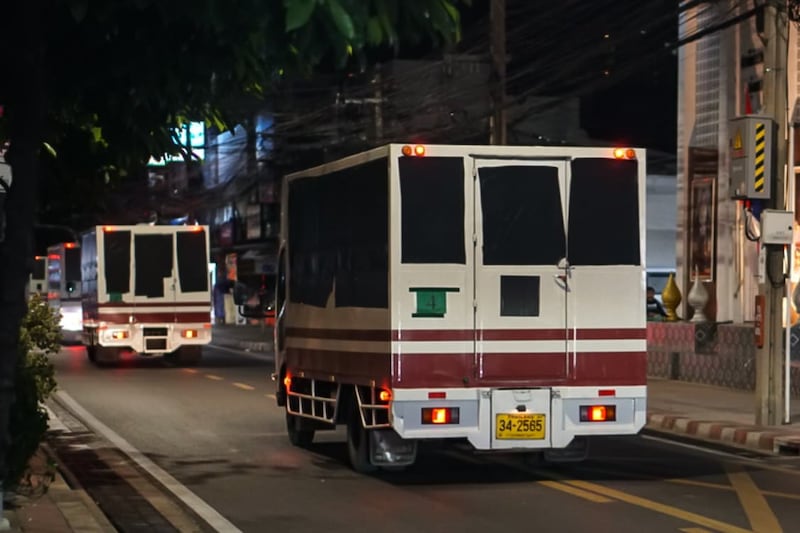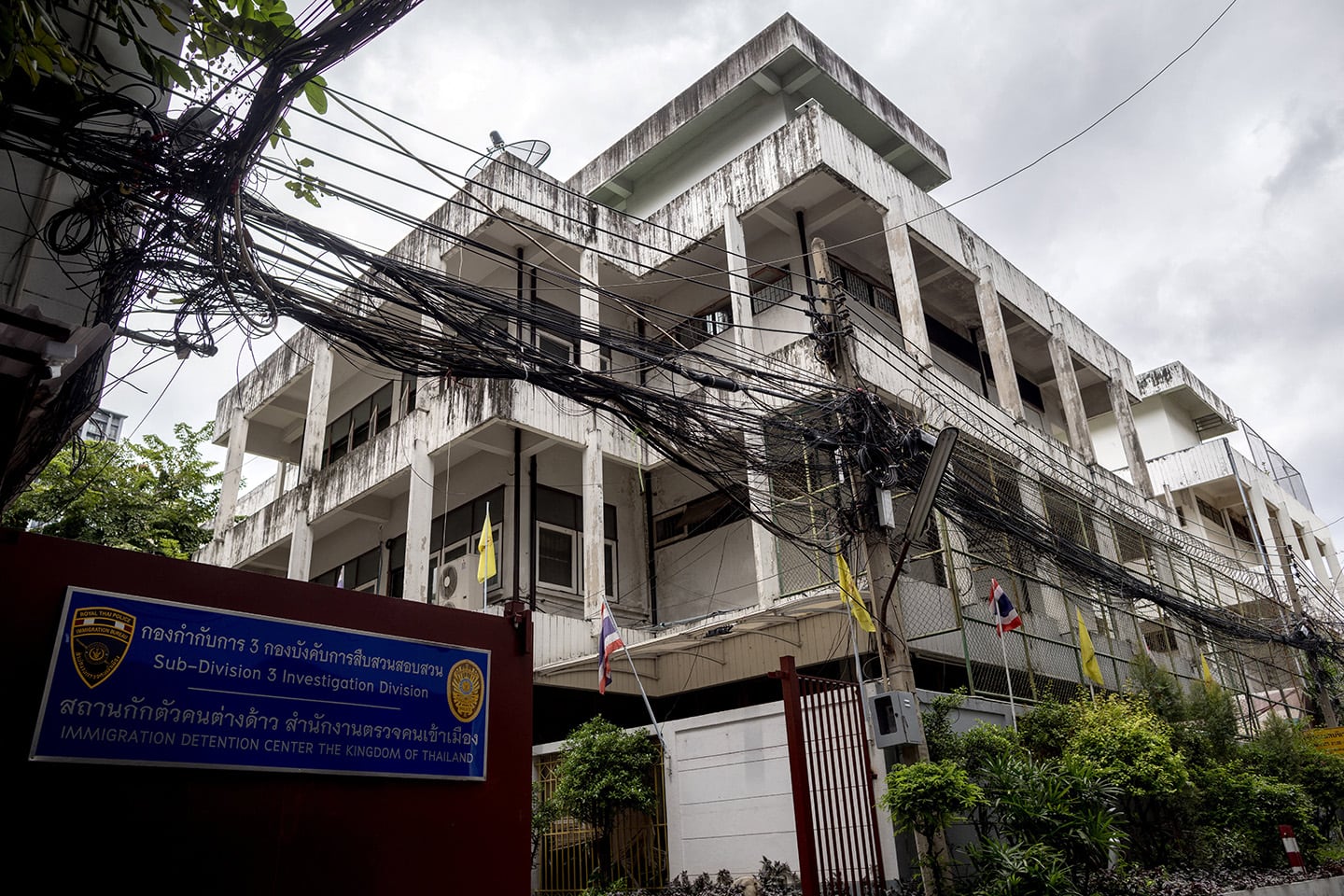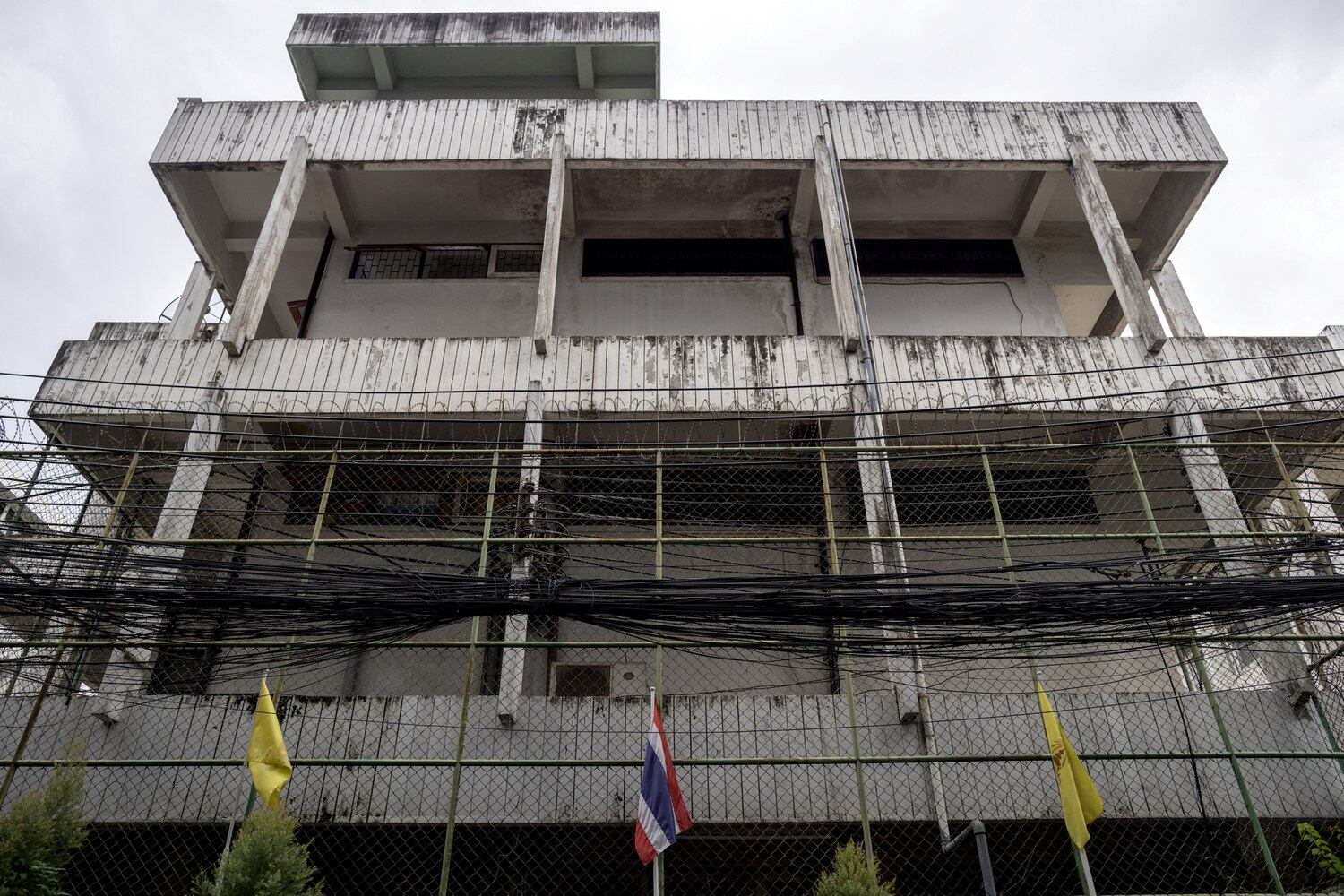Read a version of part of this report in Uyghur
Updated on March 14, 2025, at 05:45 a.m. ET
The European Parliament passed a resolution condemning Thailand for repatriating 40 Uyghurs to China, saying the move violated international law.
Wednesday’s resolution said the Uyghurs, who were deported at night on Feb. 27, are at risk of “arbitrary detention, torture and serious human rights violations,” and noted that other countries had offered to resettle the refugees.
The 40 Uyghurs had been in the Immigration Detention Center in Bangkok for over a decade. They had entered Thailand in 2014 as part of a larger group of Uyghurs escaping China.

The Thai government has been criticized by the United States as well as human rights groups and opposition politicians for sending the Uyghurs back.
The Thai minister of justice, asked about the European Parliament resolution, defended the decision to send the men back, which Thailand said was only made after getting Chinese assurances on their safety.
“The ministry of foreign affairs is ready to explain that we followed the law,” the minister, Tawee Sodsong, told reporters.
Over the past few weeks, Chinese and Thai authorities have been publishing videos of the deported Uyghurs, purportedly showing that they were happily reunited with their families and were not being punished.
There is virtually no way to confirm their state given the lack of access to these men from outside the country. Based accounts from Uyghurs who have attempted to escape China in the past, it is highly likely that the deportees were punished.
Radio Free Asia recently confirmed with police that two Uyghurs who had plans to flee China in 2014 -- but then later abandoned those plans and returned to Xinjiang -- were arrested and sentenced to nine years in prison.
The two men, Memet Awut and Turdi Abla, from Aksu in the western part of Xinjiang Uyghur Autonomous Region, had traveled to China’s southern province of Yunnan, which borders Myanmar, Vietnam and Laos, with plans to flee the country. But they returned after realizing that doing so would have put their lives in danger.

According to Aksu police, the two were among eight Uyghurs arrested at that time for trying to escape.
Six others were actually caught trying to cross the border, but Awut and Abla had no connection to this group, had never crossed the border, and returned to Xinjiang on their own. They were arrested around eight months after their return, police said.
“They were in the detention center for 22 days and later transferred to Urumqi,” a police officer in Aksu told RFA Uyghur over the phone. “It’s written in their verdict that it was because they went to Yunnan. They came back from Yunnan themselves.”
The officer was not sure how long they stayed in Yunnan.
“The verdict mentions that they couldn’t find a viable way out after moving to Yunnan and came back,” the officer said. “Their crime is attempting to escape.”
A member of the neighborhood committee in their hometown said that Awut and Abla’s sentences should have ended last year, but they are still being held in a prison in Urumqi. Their fate suggests that the treatment currently faced by the 40 deportees may not be as rosy as depicted in Chinese media.
A spokesperson of the Chinese Embassy in Bangkok said that after being reunited with their families, the 40 Uyghur deportees would undergo a period of “vocational skills training.”
The Chinese government has detained nearly 2 million Uyghurs in conscentration camps in Xinjiang, where they were subjected to forced labor. Beijing has claimed the camps are vocational centers where “students” voluntarily learn new skills.
Though the EU resolution condemning the return did not mention the camps directly, it did call on China to respect the rights of those returned and to “ensure transparency about their whereabouts.”
It also acknowledged that Thailand was an important partner of the EU, and encouraged Bangkok to “strengthen its institutions in line with democratic principles and international human rights standards.”
Translated by RFA Uyghur. Edited by Eugene Whong and Malcolm Foster.
Updated to add Thai reaction.


